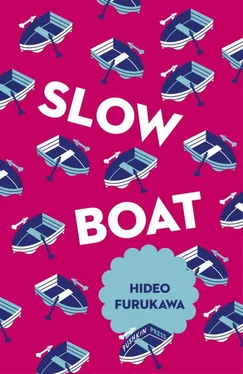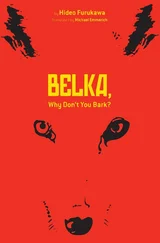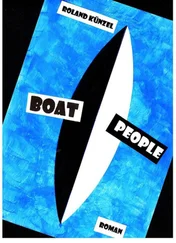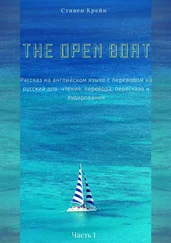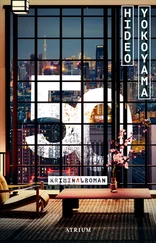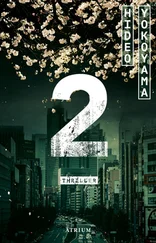“Same as ever—the world’s totally unhinged…” Fumio Narazaki sighs. “I know snowballing interest can be a real nightmare, but to end the lives of a few loan sharks with ceramic pots…”
“There’s more, though. Check this out…”
I show him photos from the three crime scenes. I’ve circled items in red.
“Something hidden?”
“What do you think?”
“…”
“See that Starbucks cup on the ground? Caramel macchiato, according to the investigation. That’s the key to this bloody tale of ramen and revenge. The cup was the killer’s—she was sipping that macchiato moments before committing murder. It’s a fact. A fact that the authorities and the media have completely neglected.”
“Interesting.”
“Unusual, right?”
“Ramen and Starbucks? Highly unusual.”
“Next scene. Ryogoku. Shards everywhere, and… here.”
Fumio Narazaki eyeballs the photograph for a few seconds.
“A tall, right?”
“Precisely. Café latte.”
“And it was the driver’s drink?”
“These sharks don’t drink coffee. It’s been corroborated.”
“All right. What about Numabukuro? Got it… Next to the pool of blood. Let me guess. Café mocha?”
“Bingo.”
“Tall again, I see.”
Fumio Narazaki snarls.
Now for the hard question. What led these three Starbucks drinkers to commit murder? What’s the connection? First hypothesis: “Some kind of complex?” Maybe, maybe not. In no time, our conversation turns away from the three crime scenes. Back to the café that links them all.
“OK, OK—what about Starbucks?” I ask. “Guilty?”
“Wait, what’s the charge?”
“Crimes against Tokyo, I guess.”
“Not guilty. Got to say, I think Bucks has done more good than evil…”
“Seriously?”
“Beats McDonald’s—they only want families, family money. At least Starbucks is open to all types. People of all creeds and classes…”
“Starbucks was sort of exclusive… at least at first…”
“But it’s different now. Men and women, all ages, go to Starbucks—and they go for the coffee. It’s not like other chains, like Doutor, where people go to smoke. I dunno. My verdict: Starbucks has raised Tokyo’s quality of life.”
“I can get behind that.”
“Of course you can. It’s almost like, like Starbucks set us free.”
“Shit… That’s it.”
“What’s what?”
“Starbucks set us free…”
“Wait, from what?”
“From life’s unwritten rules. Like, suck it up, deal with it. All that. Now you can go to Bucks… Enjoy a caramel macchiato…”
“Yeah yeah yeah. The killers smelt the coffee—and woke up. Like, ‘I should end that fucking liar’s life. Fuck it, his wife had it coming, too…’”
“I guess that’s one kind of enlightenment…”
We sit there in silence for a minute.
“Pretty sure we cracked it.”
“Cool.”
Case closed. Time to celebrate. We open a bottle of sparkling wine and pour it into the Starbucks cups I’d prepared as evidence. We put the lids on and watch the bubbles ooze through the slits. Then we raise our grandes and take a swig.
Pop, pop, pop. Goodbye, my year 2000.
BOAT EIGHT
AND KEEP YOUR HEAD UP
Hello.
I imagine this letter comes as a surprise. We’ve never met, but please read this to the end. I’ll get right to it. You once knew someone very close to me.
My sister.
My older sister. Technically, we’re half-sisters. We have different fathers. But that has nothing to do with what I want to tell you.
I’m a lot younger than my sister. I’m only nineteen. I started taking care of her as soon as I finished high school. Like a nurse. It was a long battle. Over two years. But it’s over now. In the spring, I’ll start college somewhere. The only reason I can even think about going to school is because she’s gone.
She passed away in the fall.
What she had wasn’t the sort of thing that gets better. But the hardest part for me (and the most painful part for her) wasn’t the hopelessness, not really. It was the contradiction—the fact that she had to keep getting treatment even though things were never going to turn around. I don’t know. Maybe “contradiction” isn’t the right word. Everyone knew how it was going to end. But she still spent the last two years of her life in pyjamas and slippers…
I loved my sister. That’s why I didn’t mind looking after her. She told me all sorts of stories. She let me into her life. It was almost like being in love. How can I put this? Nursing someone means being their shadow. Her routine became mine. My own life was a total blank, and it was filled with my sister’s memories. Something like that. Like I became the book of her life.
And in that book you play a major role.
I know it’s hard to believe, but I’m serious. You may not even remember her. You’ve probably forgotten her name, her face—everything. You only had a month together, and it was back in grade school.
In the mountains.
“But,” she told me, “that’s where I was saved.”
You saved her.
She told me that many times. In her own words: “He was the one who taught me to talk with the world. To speak so that others could understand. Until the summer of sixth grade, I was only sleeping—living in a dream world. Then he came along and woke me up.”
She called you her summer-school sweetheart.
After that summer she had a normal life. She got married—maybe a little earlier than most people get married these days. She was in her early twenties. A couple of years later, she found out that she was sick.
But fate’s not bad or good. A few months after she started going to the hospital, we were in the waiting room, flipping through magazines. That’s when we saw this article—“The Café Vanishes”—which was about this place you used to run. It had your name in it, and a small photo of you. (I have to say, it didn’t look like you wanted to have your photo taken.)
My sister knew it was you, right away.
I’m glad I found a way to reach you. Now that I have, I need to say something from my sister:
“Thank you.”
And, from me, too. Thank you. For everything you did to make my sister thankful. I learnt a lot from her—about courage, about love. My sister lives on, inside of me. Can I tell you the last thing she said to me?
“Stand tall—and keep your head up.”
I’m enclosing something for you—from her and me. I know it’s strange, since we’ve never even met. I just wanted you to have it. My sister really loved this CD. She was always listening to it—even at the hospital, on headphones. Her favourite was track eleven. It’s a standard number called “On a Slow Boat to China”.
I don’t know why I’m telling you this, but her husband was Chinese. He runs a small import business in Yokohama.
That’s probably what kept pulling her back to that track. She was always listening to it.
Up to the end.
Goodbye. I hope this letter reaches you.
Читать дальше
